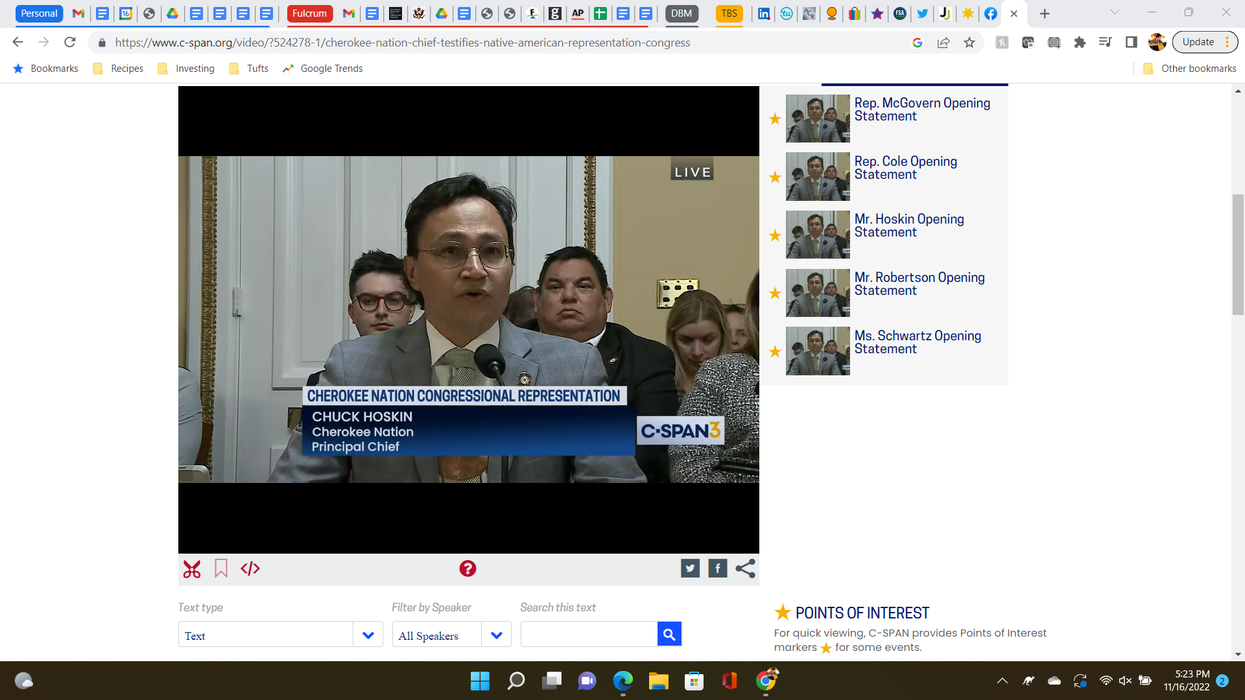On Dec. 29, 1835, U.S. officials acting at the direction of President Andrew Jackson and representatives of the Cherokee Native agreed to a treaty that required the tribe to leave its Southeast homes and migrate west of the Mississippi River.
But one section of the treaty granted the Cherokees the right to select a delegate who would serve in the House of Representatives. Specifically, Article 7 of the Treaty of New Echota states that the Cherokee Nation is “entitled to a delegate in the House of Representatives of the United States whenever Congress shall make provision for the same.” To this day, nearly two centuries later, the United States has not held up its end of the bargain.
But on Wednesday, the House Rules Committee heard testimony regarding the legal and procedural factors relating to seating a Cherokee Nation delegate. (The Senate approved the treaty, as per procedure, but the House needs to set the terms for adding a seat.)
The committee’s ranking member, Republican Rep. Tom Cole of Oklahoma, acknowledging the government’s shortcomings, stating: “For far too long, in our nation’s history, the federal government accumulated a sorry record of making promises to tribes and then breaking those promises as soon as it was expedient to do so.”
While Cole, a member of the Chickasaw Nation, said he was happy the Cherokee Nation is seeking fulfillment of the treaty, he expressed concerns about double-representation of constituents, the character of the House and the overall constitutionality of adding an additional seat.
Chuck Hoskin Jr., the principal chief of the Cherokee Nation, noted in his opening remarks that his people were standing up for what they were promised.
“Cherokee Nation has, in fact, adhered to our obligations under these treaties. I’m here to ask the United States to do the same,” he said. “It's time for this body to honor this promise and seat our delegate in the House of Representatives. No barrier, constitutional or otherwise, prevents this.”
Kim Teehee, an attorney and Native American activist, was named delegate in 2019 but has no place to serve. Because Teehee would lack full voting privileges, like other House delegates, Hoskin claimed Teehee’s status “should not pose a significant barrier to seating.”
Mainon Schwartz, a legislative attorney at the Congressional Research Service, testified that the additional seat may pose constitutional concerns because it would be the first instance of a Native tribe getting representation, although she said the non-voting status might negate any complications.
The committee seemed receptive to the Cherokee Nation’s requests despite the questions that arose.
“As I study this issue, I believe it is the right thing to do — it’s the moral thing to do,” said Chairman Jim McGovern, a Democrat from Massachusetts.



















Trump & Hegseth gave Mark Kelly a huge 2028 gift